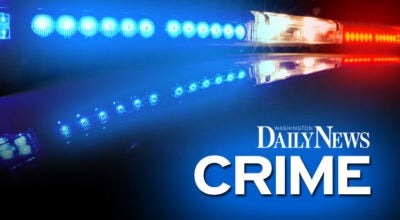Elections officials confident in voting security
Published 6:38 pm Wednesday, September 7, 2016
Although North Carolina is working with federal officials to implement cybersecurity measures ahead of the upcoming Nov. 8 general election, the Beaufort County Board of Elections is confident its voting data will be secure.
Last month, the state accepted the Department of Homeland Security’s offer to participate in its cybersecurity program for the election, which includes the presidential race. The state requested technical assistance from the department’s cybersecurity experts. The program includes risk assessment and in-depth scanning of voting-related systems. The federal assistance is free to states.
“It is my understanding that the state board is working with Homeland Security. We would encourage that, but on the county level our main deterrent from any kind of hacking is the fact that we never, ever under any circumstances hook our voting machines up to the internet,” said Kellie Harris Hopkins, the county’s elections director, during the board’s meeting Tuesday. “They are standalone equipment. They’re coded. The tabulators are self-sufficient. The computer that gathers all that information has never been hooked to the internet. … So, the only threat I could possibly see if somebody manipulated the public’s view of what’s going on, and if that happened, we would be able to see that in the tapes and through the audit.”
Hopkins told the board she believes “the worst that could happen in Beaufort County is to manipulate what the public view is prior to canvass day.” If there were a problem, elections officials would notice by canvass day, she said. “If, if by some chance they can wirelessly remote into these machines — which I know they can’t — if that were to happen, we still have paper ballots,” Hopkins said. “We always have our paper ballots to go back to.”
Although some people may be confused or worry about hackers intruding into North Carolina’s voting process, Hopkins believes that process will prove secure. “If it does happen, there are plenty of safeguards throughout the state of North Carolina. Knowing, and I’ve worked with the state board for many years, that we would be able to see that and correct it before the results were made official,” she said.
Board member John Tate weighed in on the matter. “You literally can’t hack those machines because there isn’t a Wi-Fi receiver in them. There isn’t even an Ethernet plug. They’re standalone. There’s a paper tape and there are paper ballots,” Tate said. “We do sample audit counts to make sure the machines are running correctly.”
North Carolina’s voting laws and procedures ensure a paper trail and backup checks if electronic data is compromised, according to the state board.
State and local elections officials are not providing details of the risk assessments, saying that information could alert hackers to vulnerabilities they could exploit. Federal cybersecurity experts will perform many of the scans and risk assessments remotely.
“While DHS is not aware of any specific or credible cybersecurity threats relating to the upcoming general election systems, Secretary (Jeh) Johnson reiterated that DHS, the Election Assistance Commission, NIST, and DOJ are available to offer support and assistance in protecting against cyber attacks,” reads a DHS news release. NIST and DOJ refer to the National Institute of Standards and Technology and the U.S. Department of Justice, respectively.






